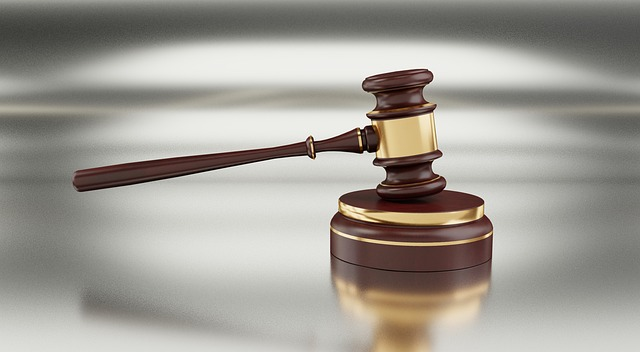Facing arrest for the first time in Salt Lake City, Utah prompts key decisions. Remain composed, utilize your right to silence, and secure a lawyer promptly. Our guide outlines what to do if you’re arrested for the first time, emphasizing the actions that will protect your rights and influence your case’s trajectory. Detailing how to interact with police officers, the significance of legal representation, and what the booking process entails, this article provides the critical information you need right now. Focus here to understand and manage this challenge effectively.
Key Takeaways
- Maintaining composure and not resisting arrest are crucial during the arrest process, and it is advised to exercise the right to remain silent to avoid self-incrimination until speaking with an attorney.
- Securing a criminal defense lawyer is essential for navigating the legal system and understanding one’s rights, such as the right to remain silent, the right to an attorney, and the responsibilities during the arrest and booking process.
- Understanding the bail process, the importance of not pleading guilty without legal counsel, preparing for court, and leveraging post-arrest support and resources is vital for a favorable outcome in a criminal case.

Immediate Actions: Staying Composed During Your First Arrest
A first arrest can feel like a hurricane ripping through your life, but the best way to weather this storm is to stay calm. Maintaining composure during this time is vital. It’s natural to feel nervous, but communicating this respectfully can help de-escalate the situation.
Contrary to what you might see in movies, resisting arrest or making sudden movements can only worsen the situation. Law enforcement officers, such as police officers, are trained to prioritize safety, and unexpected actions can be interpreted as a threat. Rather, you and your friends or family should cooperate with the officers. This can facilitate better communication and information gathering during the arrest process.
Understanding Your Right to Remain Silent
One of the most fundamental legal rights you have during an arrest is the right to remain silent. It’s easy to feel pressured to explain yourself, but remember this: speaking to the same police officer without a lawyer can lead to self-incrimination. Law enforcement officers are primarily focused on solving the crime, and your words can be used against you, even if you believe you’re innocent.
This right to silence extends to conversations with anyone other than your attorney. Conversations at a Salt Lake City jail or facility, even with family, friends, or cellmates, may be recorded and are not confidential. These discussions could potentially be used in court. In essence, exercise your right to silence until you speak with your attorney.
Securing a Criminal Defense Lawyer
The first crucial step after an arrest is to secure a criminal defense lawyer. It’s not an admission of guilt; rather, it’s about protecting your rights and navigating the complex legal terrain. If you can’t afford a private attorney, you have the right to ask for a public defender or court-appointed lawyer.
Guidance through the legal process, advice on law enforcement questioning, discussions about charges, and negotiating a plea agreement and release terms can be provided by a criminal defense attorney. Remember, your request for legal representation must be clear and unambiguous to be upheld by the court.
Handling the Booking Process
After the arrest, you’ll be taken to a Salt Lake City police station for booking, which officially starts the arrest record process. This process can be quite comprehensive and may take several hours to complete. Here’s what to expect.
Upon being taken into police custody, your identification will be recorded, including your name and the alleged crime. You’ll have your mug shot taken, which serves to document your physical condition upon arrest. All your personal belongings will be inventoried and secured, and any items considered contraband or evidence will be retained by the police.
Next, the following procedures will be conducted upon your arrival at the jail:
- Your fingerprints will be taken and entered into the FBI’s national database.
- A thorough full-body search, which might include a strip search, is conducted to ensure no prohibited items enter the jail.
- DNA samples may also be collected to be added to national DNA databases.
- Finally, health screenings are conducted to address any immediate medical needs and ensure the safety of staff and other detainees.
Know Your Rights and Responsibilities
While navigating the criminal justice system, it is crucial to understand your rights and responsibilities. Firstly, you have the right to remain silent and the right to an attorney during any interaction with police, even before an arrest. This means you don’t have to answer any questions without a lawyer present. All discussions with your lawyer are protected by the attorney-client privilege, ensuring confidentiality.
However, while you have the right to remain silent, refusal to provide your name when demanded by an officer of law enforcement can lead to arrest in certain jurisdictions. Additionally, individuals are not required to consent to a search of themselves or their belongings, but officers may conduct a limited pat-down if they suspect a weapon.
Remember, these rights exist to protect you. They don’t imply guilt, and exercising them can’t be used against you. However, it’s equally important to respect the responsibilities that come with these rights, such as cooperating with law enforcement officers when necessary.
Understanding Bail and Pretrial Release
You may qualify for release from custody on bail after an arrest warrant has been issued. Bail is a sum of money paid as a deposit to ensure that you will attend your court hearings. The amount of bail varies based on factors such as the seriousness of the crime, your criminal history, and your ties to the community.
During a bail hearing, the judge will decide whether to release you on bail, on your recognizance, or deny bail based on factors such as flight risk or public danger considerations. If bail is granted, it can be posted through various means, including cash, credit or debit cards, checks, or with sureties such as a bail bond agency.
Note that there are risks involved in posting bail for someone else. The bail money could be forfeited, applied to legal fees, or used to cover fines and court costs if the defendant fails to meet court obligations. Therefore, it’s advisable to consult with a criminal defense attorney before post-bail or considering a bail bondsman.
The Importance of Not Pleading Guilty Prematurely
The urgency of the situation may tempt you to plead guilty to expedite the process. However, hasty decisions without the guidance of legal counsel can lead to undesirable outcomes. Consulting with a criminal defense lawyer immediately before making any plea decisions is imperative, even if you believe you’re guilty.
First-time offenders or individuals with a minimal criminal record may have access to alternatives such as pre-trial diversion programs or pleas in abeyance, which can lead to more favorable outcomes. A criminal defense lawyer can help you explore these options and make an informed decision.

Preparing for Your Court Date
Court dates are crucial milestones in the legal process. During your first court appearance, you’ll be formally notified of the charges against you and be advised of your rights, including the right to have counsel represent you.
Preparing for your court date involves arriving early for your first arraignment hearing, anticipating a waiting period, and noting any subsequent court dates given by the judge. At the arraignment, you have the right to stand mute or allow the court to enter a ‘not guilty’ plea on your behalf, giving your legal team more time to develop your defense.
Dealing with Potential Criminal Charges
Understanding the legal process can help reduce the fear that comes with facing criminal charges. One cornerstone of criminal law is the concept of ‘beyond reasonable doubt’. This means the prosecution must prove your guilt in a criminal case to such a degree that there’s no other reasonable conclusion than that you committed the crime.
A defense attorney leverages this concept to protect your rights, by:
- questioning the credibility of the prosecution’s witnesses
- highlighting inconsistencies in their case
- presenting alternative explanations for the evidence
Both direct evidence, like eyewitness testimony, and circumstantial evidence, such as fingerprints or surveillance footage, are pivotal in establishing reasonable doubt.
Defense strategies often involve:
- Rigorous investigation
- Consulting with experts
- Legal maneuvers such as motions for discovery to uncover all useful evidence, challenge probable cause, contest the credibility of witnesses, and confirm evidence authenticity and admissibility
Understanding these strategies can provide some reassurance as you face potential criminal charges.
Post-Arrest Support and Resources
The right support and resources after an arrest can significantly improve the situation. If you can’t afford a private attorney, you have the right to a public defender. However, public defenders often have large caseloads and limited resources, which might affect the level of personal attention they can provide.
Compared to public defenders, private criminal defense attorneys typically offer the following advantages:
- They handle fewer cases, allowing them to give more personalized attention and time to each client.
- They have access to resources such as expert witnesses and can uncover weaknesses in the prosecution’s case.
- Many private defense lawyers are open to fee negotiations, making quality legal representation more affordable.
Beyond legal representation, practical assistance like medication delivery or maintaining rent and utility payments may also be needed from friends or family. They can also locate you by utilizing local government websites or contacting Salt Lake City law enforcement, which can be crucial for legal proceedings and providing support.
Summary
Being arrested for the first time can feel like navigating a maze in the dark. But with the right understanding of your rights, the legal process, and the support available, you can find your way out. Remember to stay calm, secure a criminal defense lawyer, understand your rights, and never plead guilty prematurely. Your rights and the law are your companions in this journey, guiding you towards justice. Are you facing a first-time arrest in Salt Lake City, Utah? Contact Levitt Legal to represent you today!
Frequently Asked Questions
What not to say when arrested?
When arrested, avoid saying too much to the police. It’s best to provide basic identification information only and not give any explanations or excuses. Remember, you have the right to make a phone call to consult with a lawyer.
What happens when a person is taken to jail?
When a person is taken to jail, they are placed in handcuffs, taken to a police station or substation for processing, and then driven to county jail for paperwork, photographs, fingerprints, and a medical screening, before being assigned a cell.
What does it feel like to be arrested?
Being arrested can be a frightening experience, causing worry and a feeling of being judged. It can be especially scary if you’re unsure of what will happen next.
What are the immediate actions I should take during an arrest?
During an arrest, it’s crucial to remain calm, communicate respectfully, avoid sudden movements, and not resist arrest. It’s also important to ensure that any friends or family present do the same.
What is the importance of remaining silent during an arrest?
It is important to remain silent during an arrest to avoid self-incrimination, and it’s advisable to consult with your lawyer before speaking to the police. Always remember your constitutional right to remain silent.
